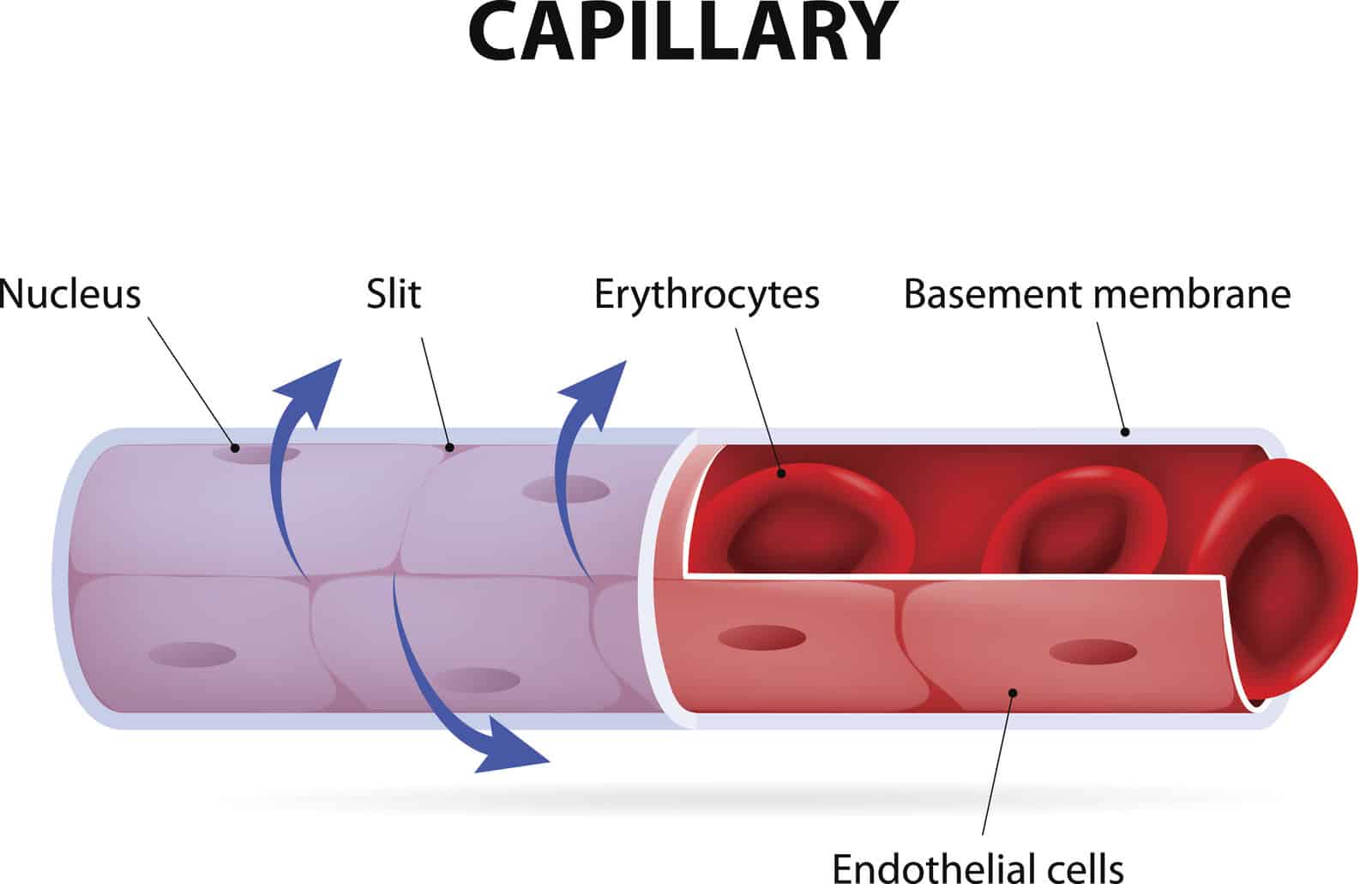Capillaries

Capillaries are the smallest of a body's blood vessels and are only one cell thick. They connect the arterioles and venules, and their main function is to distribute oxygenated blood from the arteries to the tissues in the body and remove carbon dioxide from the tissues back to the veins.
The walls of capillaries are lined with endothelial cells, which are cells that line the inner surfaces of blood vessels and help to regulate blood flow.
The endothelial cells of capillaries are held together by a type of cell-to-cell junction called a tight junction. This type of junction allows small molecules, like oxygen and carbon dioxide, to pass through the endothelial cells and into the tissues.
Capillaries are found in all tissues of the body, including the brain, muscles, and skin. They are responsible for exchanging nutrients and wastes between the blood and the tissues.
Capillaries are especially prevalent in areas where blood flow needs to be regulated carefully, such as the brain and the digestive system. In these areas, capillaries help to ensure that nutrients and oxygen are delivered to cells while waste products are removed.
Capillaries also play an important role in the immune system by helping to remove pathogens and other foreign substances from the bloodstream.
Capillaries are vital to the health of the body, and when they become damaged, they can have a serious impact on our health. If you are concerned about your own capillary health, talk to your doctor about ways to keep them healthy and functioning properly.